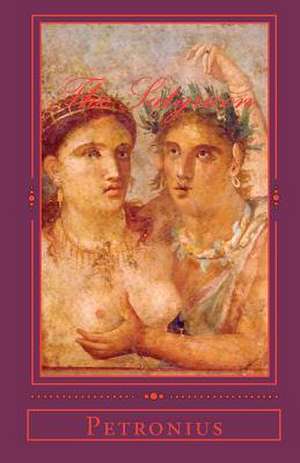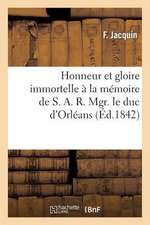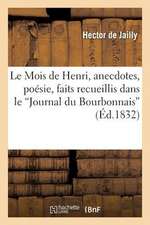The Satyricon
Autor Petroniusen Limba Engleză Paperback
| Toate formatele și edițiile | Preț | Express |
|---|---|---|
| Paperback (3) | 57.40 lei 22-33 zile | +19.22 lei 6-12 zile |
| Penguin Books – 5 oct 2011 | 57.40 lei 22-33 zile | +19.22 lei 6-12 zile |
| Alma Books COMMIS – 31 oct 2009 | 60.84 lei 3-5 săpt. | |
| Hackett Publishing Company – 29 feb 2000 | 94.05 lei 3-5 săpt. | +17.92 lei 6-12 zile |
Preț: 87.09 lei
Nou
Puncte Express: 131
Preț estimativ în valută:
16.67€ • 17.34$ • 13.97£
16.67€ • 17.34$ • 13.97£
Carte indisponibilă temporar
Doresc să fiu notificat când acest titlu va fi disponibil:
Se trimite...
Preluare comenzi: 021 569.72.76
Specificații
ISBN-13: 9781453863381
ISBN-10: 1453863389
Pagini: 286
Dimensiuni: 140 x 216 x 15 mm
Greutate: 0.33 kg
Editura: CREATESPACE
ISBN-10: 1453863389
Pagini: 286
Dimensiuni: 140 x 216 x 15 mm
Greutate: 0.33 kg
Editura: CREATESPACE
Notă biografică
Titus
Petronius
Arbiter
is
reputedly
the
author
of
theSatyricon.
According
to
Tacitus,
Petronius'
chief
talent
lay
in
the
pursuit
of
pleasures,
in
which
he
displayed
such
exquisite
refinement
that
he
earned
the
unofficial
title
of
the
emperor
Nero's
'arbiter
of
elegance'
(arbiter
elegantiae).
Court
rivalry
and
jealousy
contrived
to
cast
on
Petronius
the
suspicion
that
he
was
conspiring
against
the
emperor,
and
he
was
ordered
to
commit
suicide
in
A.D.
66.
He
gradually
bled
to
death,
opening
his
veins,
binding
and
re-opening
them,
passing
his
last
hours
in
social
amusement
and
the
composition
of
a
catalogue
of
Nero's
debaucheries.
J. P. Sullivan was Professor of Classics at the University of California, Santa Barbara when he died in 1993. He was the author of many works, includingThe Satyricon of Petronius: A Literary Study and LiteratureandPolitics in the Age of Nero.
Helen Morales is Associate Professor of Classics at the University of California, Santa Barbara. She is co-editor of the journalRamus: Critical Studies in Greek and Latin Literature, author ofVision and Narrative in Achilles Tatius' 'Leucippe and Clitophon'andClassical Mythology: A Very Short Introduction, and editor of the Penguin ClassicsGreek Fiction.
J. P. Sullivan was Professor of Classics at the University of California, Santa Barbara when he died in 1993. He was the author of many works, includingThe Satyricon of Petronius: A Literary Study and LiteratureandPolitics in the Age of Nero.
Helen Morales is Associate Professor of Classics at the University of California, Santa Barbara. She is co-editor of the journalRamus: Critical Studies in Greek and Latin Literature, author ofVision and Narrative in Achilles Tatius' 'Leucippe and Clitophon'andClassical Mythology: A Very Short Introduction, and editor of the Penguin ClassicsGreek Fiction.
Descriere
Descriere de la o altă ediție sau format:
Most likely written by an advisor of Nero, this title recounts the adventures of Encolpius and his companions as they travel around Italy. Estimated to date from 63 - 65 AD, and only surviving in fragments, it offers a satirical portrait of the age of Nero, in all its excesses and chaos.
Most likely written by an advisor of Nero, this title recounts the adventures of Encolpius and his companions as they travel around Italy. Estimated to date from 63 - 65 AD, and only surviving in fragments, it offers a satirical portrait of the age of Nero, in all its excesses and chaos.
Recenzii
[Ruden] has caught, better than any translator known to me, both the conversational patterns of Petronian dialogue and the camera-sharp specificity and color of the Satyricon's descriptive passages. . . . A quite extraordinary achievement against heavy odds. --Peter Green, The Los Angeles Times Book Review
Relying on. . . her excellent knowledge of Latin, her lively feel for contemporary slang and rhythm, and her infectious love of the work, [Ruden] gives us the full Satyricon ; she shows us a man making a comic masterpiece out of Neronian chaos. . . . Her book as a whole, breathing knowledge and affection, is a delight. --Donald Lyons, The New Criterion
This is a really useful volume which can readily be recommended as a set text to students. The ten commentaries at the end are judicious overviews of important topics connected with the work and the suggestions for further reading are up-to-date and intelligent. --Susanna Morton Braund, Yale University
Relying on. . . her excellent knowledge of Latin, her lively feel for contemporary slang and rhythm, and her infectious love of the work, [Ruden] gives us the full Satyricon ; she shows us a man making a comic masterpiece out of Neronian chaos. . . . Her book as a whole, breathing knowledge and affection, is a delight. --Donald Lyons, The New Criterion
This is a really useful volume which can readily be recommended as a set text to students. The ten commentaries at the end are judicious overviews of important topics connected with the work and the suggestions for further reading are up-to-date and intelligent. --Susanna Morton Braund, Yale University


















